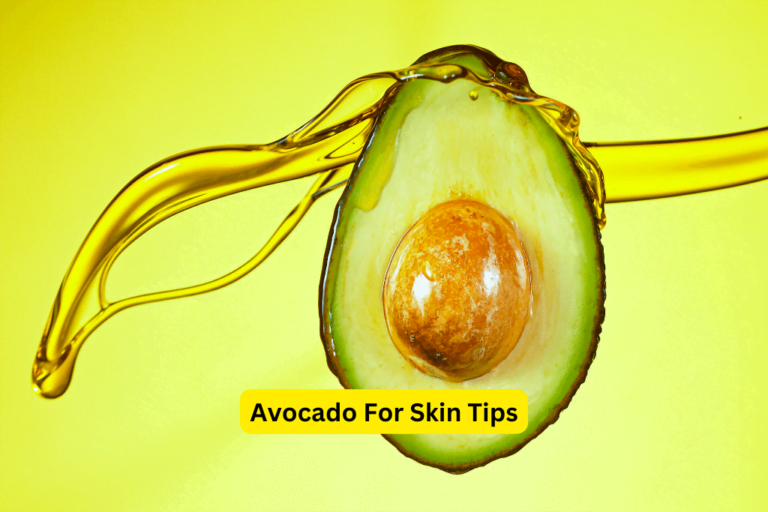Say Goodbye to Oily Skin: Natural Tips for a Blemish-Free Complexion
Oily Skin Tips Naturally
Oily skin can be a common concern for many people, causing a shiny, greasy appearance and making it difficult to maintain a fresh and blemish-free complexion. Understanding the causes and effects of oily skin can help you find effective solutions that are natural and gentle on your skin. In this comprehensive guide, we will explore various natural remedies, lifestyle tips, and skincare techniques to help you achieve a shine-free look.
Definition and Causes of Oily Skin
Oily skin, also known as seborrhea, is a skin type characterized by excessive sebum production. Sebum is a natural oil produced by the sebaceous glands in the skin, which helps to keep the skin moisturized. However, when there is an overproduction of sebum, it can lead to oily skin.
There are several factors that can contribute to oily skin, including genetics, hormonal fluctuations, stress, and environmental factors. It is important to note that while oily skin can be frustrating, it is not necessarily a bad thing. In fact, oily skin tends to age more slowly and has a lower risk of developing wrinkles and fine lines.
The Importance of Treating Oily Skin
While oily skin has its benefits, it is essential to address any concerns related to excessive sebum production. Untreated oily skin can lead to clogged pores, acne breakouts, and an uneven skin texture. It can also affect your self-confidence and make you feel self-conscious about the appearance of your skin.
By implementing a proper skincare routine and incorporating natural remedies for oily skin, you can manage and control the excess oil production while maintaining a healthy and radiant complexion.
Effective Natural Remedies for Oily Skin
1. Proper Cleansing Techniques
Cleansing is a vital step in any skincare routine, especially for oily skin. Using a gentle cleanser that is specifically formulated for oily skin can help remove excess oil and prevent clogged pores. Look for cleansers that contain ingredients like salicylic acid or tea tree oil, as they have natural oil-controlling properties.
Exfoliation is another important technique for oily skin care. Gentle exfoliation helps to remove dead skin cells and unclog pores, reducing the risk of acne breakouts. However, be cautious not to over-exfoliate, as it can strip the skin of its natural oils and lead to increased oil production.
For a natural and gentle exfoliation option, you can create your own DIY cleansers using ingredients like honey, green tea, or clay. These ingredients are known for their ability to absorb excess oil and leave the skin feeling refreshed.
2. Balancing Oily Skin with Toning
Toners play a crucial role in balancing the skin’s pH levels and controlling excess oil production. Look for natural toner options like witch hazel, apple cider vinegar, or rose water, as they have astringent properties that help to tighten the pores and reduce oiliness.
When using a toner, it is essential to pat it onto the skin gently rather than rubbing it. This allows the toner to penetrate the skin and work effectively.
3. Nourishing Oily Skin with Moisturizers
A common misconception is that individuals with oily skin should skip moisturizers. However, moisturizing is a crucial step in any skincare routine, regardless of skin type. When the skin is adequately moisturized, it can help regulate the production of sebum and prevent excess oiliness.
Look for non-comedogenic moisturizers that are oil-free and lightweight. These moisturizers hydrate the skin without clogging the pores, leaving it soft and supple. For a natural option, you can create DIY moisturizers using ingredients like aloe vera, jojoba oil, or cucumber, which have soothing and moisturizing properties.
4. Targeting Oily Skin with Masks and Treatments
Masks and treatments can be beneficial in managing oiliness and improving the appearance of the skin. Look for masks that contain ingredients like oatmeal, lemon juice, or turmeric, as they have oil-absorbing and astringent properties.
In addition to homemade options, there are several products available in the market that are specifically designed to control oiliness and reduce shine. Look for products that contain ingredients like clay, charcoal, or salicylic acid for effective oil-controlling treatments.
5. Natural Remedies for Oily Skin from the Inside Out
The health of your skin is not solely determined by external factors; what you consume internally also plays a significant role. A balanced diet rich in fruits, vegetables, and whole grains can contribute to balanced oil production and overall skin health.
Additionally, staying properly hydrated is crucial for maintaining healthy skin. Drinking plenty of water helps to flush out toxins from the body and keep the skin hydrated from within.
There are also certain herbal teas and supplements that can aid in managing oily skin. Ingredients like green tea, burdock root, and zinc have been known to regulate oil production and improve the skin’s appearance.
Lifestyle and Skincare Tips for Oily Skin
1. Mindful Makeup Practices
When it comes to makeup for oily skin, it is important to choose products that are specifically designed for oily or combination skin. Look for oil-free and non-comedogenic formulas that won’t clog the pores or contribute to excess oiliness.
Additionally, using techniques like applying a mattifying primer, setting your makeup with powder, and using blotting papers throughout the day can help keep shine at bay and ensure your makeup lasts longer.
It is crucial to remove your makeup thoroughly before going to bed. Leaving makeup on overnight can clog your pores and contribute to oiliness and breakouts.
2. Sun Protection for Oily Skin
A common misconception is that individuals with oily skin don’t need to use sunscreen. However, sunscreen is essential for protecting your skin from the harmful effects of the sun, regardless of your skin type.
Look for lightweight and oil-free sunscreens that won’t feel heavy or contribute to excess oil production. Make sure to apply sunscreen generously and reapply every two hours, especially if you are spending time outdoors.
3. Managing Stress and Oily Skin
Stress can have a significant impact on the overall health of your skin, including oil production. When you are stressed, your body releases stress hormones like cortisol, which can stimulate the sebaceous glands and lead to increased sebum production.
Implementing stress-management techniques like mindfulness, exercise, and self-care practices can help reduce stress levels and manage oily skin. Taking time for yourself and engaging in activities you enjoy can contribute to a healthier and more balanced complexion.
Conclusion
Incorporating effective natural remedies and healthy lifestyle practices can help you tackle oily skin and maintain a blemish-free complexion. Remember, consistency is key when it comes to skincare, and adopting a natural and gentle approach can provide long-term benefits for your skin.
By following these tips and techniques, you can say goodbye to oily skin and hello to a healthier, shine-free complexion.
"Have You Seen Mike Walden's new holistic acne System yet? It's called "Acne No More" I've read the whole thing (all 223 pages) and there's some great information in there about how to naturally and permanently eliminate your acne without drugs, creams or any kind of gimmicks. I highly recommend it - it's very honest and straightforward without all the hype and b.s. you see all over the net these days. Here's the website where you can get more information:
Click Here -->AcneNoMore









